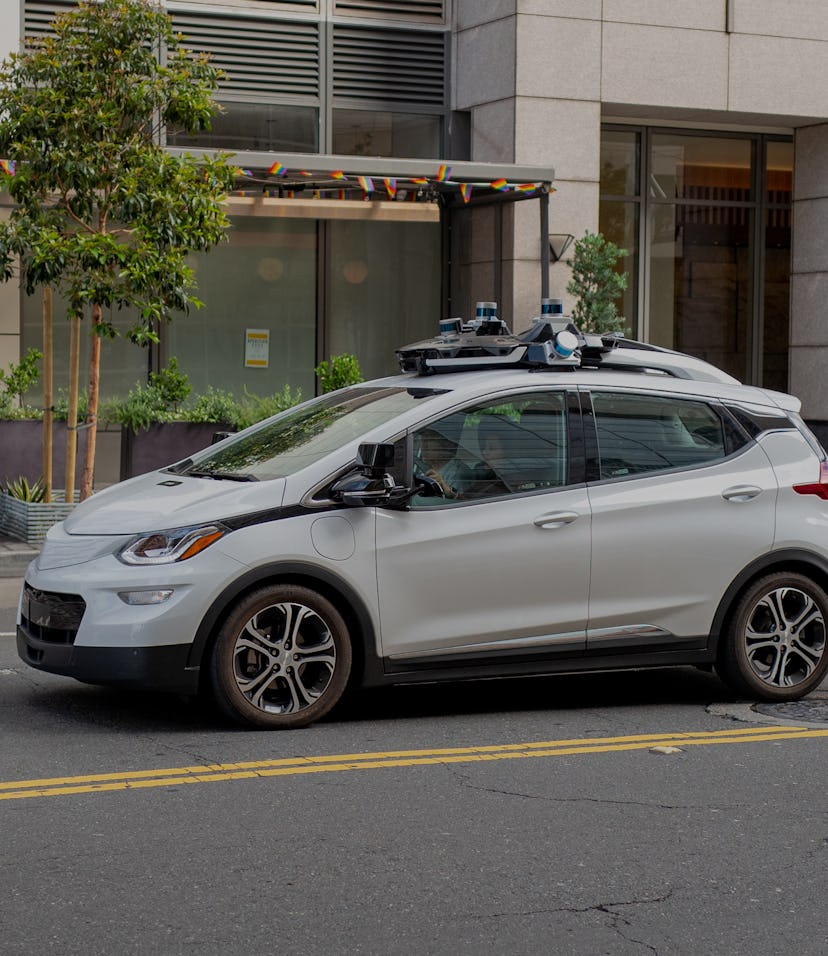Culture
California will require all autonomous cars to be zero-emissions
Most self-driving cars in development are already fully electric, but a new law isn't taking any chances.

California has passed a new bill that will require all autonomous vehicles operating in the state to be zero emissions by 2030.
Self-driving technology is still in its infancy, with most vehicles still under supervised testing. And just a small fraction of the state’s 15 million vehicles are at all autonomous. But this new law, SB 500, foresees a future when the technology has matured to the point that it lives up to its lofty expectations of replacing most people’s private cars with shared driverless taxis.
Pre-emptive strike — If that future does come to fruition, California wants to be sure that all that new commuting doesn’t translate into major pollution. So this new law is pre-emptive, targeting the vehicles before they’re already on the road and it’s harder to turn back the clock. Makers of autonomous vehicles will have to ensure they’re building on battery-electric platforms before they come to market. But the 2030 deadline gives them plenty of time as the entire automotive industry has moving electric at a rapid pace. Waymo, Cruise, and others are primarily using electric or hybrid vehicles already.
Cruise, the autonomous research division of GM, was a supporter of SB 500. “We’re grateful for California’s leadership in ensuring this will be the industry standard,” said Prashanthi Raman, head of global government affairs at Cruise, in a statement to Engadget. “The AV industry is primed to lead the way in reducing greenhouse gas emissions in cities, and it’s why we’ve operated an all-electric, zero-emissions fleet from the start.”
The Golden State is car heavy — California has a lot of sway over the automotive industry in the United States, as it’s the largest market for vehicles in the country and automakers cannot generally make separate cars just for one state — as such, any standard set in California basically applies to all cars sold in the country. The Trump administration fought aggressively to throw out California’s aggressive fuel emissions requirements and was supported by the likes of GM in those efforts. But under President Biden that’s all changed, and companies are falling into line to progressively reduce their vehicle’s emissions before going fully electric.
California has already mandated that sales of new gasoline and diesel-powered vehicles be banned by 2035. According to the Environmental Protection Agency, the transportation sector is the single largest source of greenhouse gas emissions.